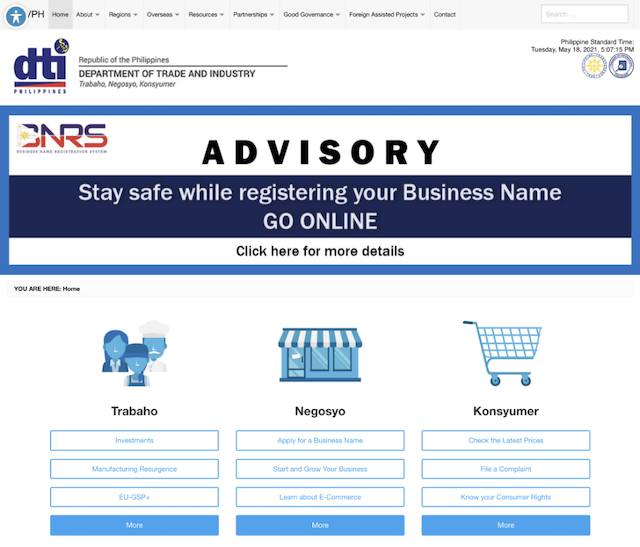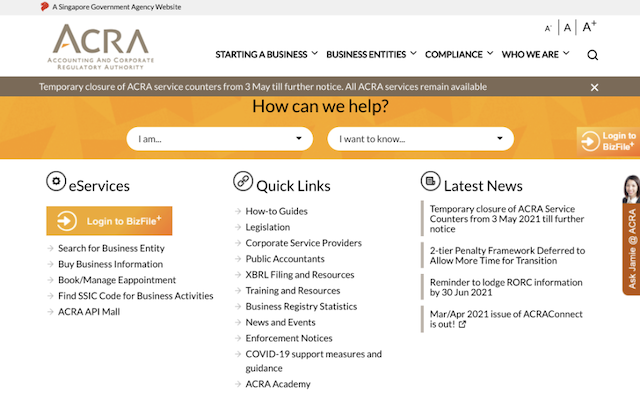Throughout Asia, business is booming. From large multinationals to mom-and-pop shops, there are countless opportunities for entrepreneurs to get into business in the region. High technology adoption rates within Asia has also given rise to new opportunities in setting up your business online.
Interested to start your own business in the Philippines, Malaysia, Singapore, or Hong Kong? This article is for you! You need to know what business structures are available to you in each country.
Also, stick around until the end as we’ll also include a couple of helpful tips for coming up with your business plan structure. This way you can rest assured you’re starting off with a great roadmap for your new business.
Let’s dive right into it!
——
What business structures are available in the Philippines?
We’ll start our business structure deep dive in the island nation of the Philippines. Aside from being famous for its beautiful beaches, the Philippines can be a great place to register a business. There are several business structures available, including:
- Sole Proprietor: This is the simplest structure and gives the business owner full control over the business and its assets. But since it doesn’t provide any legal separation, the owner can be 100% liable in the event of a lawsuit or other issue.
Registering as a sole proprietorship is an attractive option as it requires the least amount of paperwork, therefore it is generally the easiest to set up. Potential businesses under this category include handyman, small catering company, or freelance writer.
- Partnership: Two or more individuals can form a General or Limited Partnership (LP) in the Philippines. Unlike a sole proprietorship, a partnership is treated as a separate legal entity. In a general partnership, members share profits and losses of the business. In limited partnerships, the limited partner(s) have limited liability.
- Corporation: A corporation in the Philippines is treated as a legal person and can be owned by a minimum of five and a maximum of fifteen shareholders. Each member must hold at least one share, and their liability in the company is limited by the number of shares they hold. All corporations should be registered with the Philippines Securities and Exchange Commission (SEC).
Other structures include Branch Office, Representative Office, Regional Headquarters, and Regional Operating Headquarters. According to EnterPH, foreigners can own businesses under different circumstances depending on the industry.

Related: Need more details on starting your business in the Philippines? We’ve got you covered with this comprehensive guide.
How about forming a business in Malaysia?
Heading west from the Philippines is Malaysia. According to local incorporation specialists Foundingbird, you can choose from three general business structure categories in Malaysia.
- Registration of Business (ROB): These structures don’t provide separate legal entities, therefore the owners maintain unlimited liability. Examples include Sole Proprietor and Partnership.
- Registration of Company (ROC): These structures provide legally separate entities apart from directors and shareholders.
- Private Limited Company - Sendirian Berhad (Sdn Bhd)
- Public Limited Company - Berhad (Bhd)
- Company Limited by Guarantee (CLG)
- Unlimited Company (Sdn)
- Foreign Company
- Limited Liability Partnership (LLP): This is a combination of a partnership with Sdn Bhd.
If you are wondering which type of business or company you should register for, this depends on what you’re looking for.
Local Malaysians or permanent residents starting small businesses may opt for a Sole Proprietor or Partnership. These are easy to start and require little paperwork, but are riskier since they aren’t legally separate entities.
For companies in Malaysia with larger ambitions, non-profits, and for foreigners, a Company (ROC) option should be more suitable. Private Limited Companies are one of the most popular options for their legal separation, ability to issue shares, as well as the option for 100% foreign ownership. Limited Liability Partnerships are a hybrid between a regular partnership and a private limited company. They offer legal separation but fewer compliance hurdles than ROCs.
Related: How to start a business in Malaysia
How about business structures in Singapore?
Down at the bottom of Peninsular Malaysia is Singapore. With its thriving business hub, multinational corporations are at home here but it’s also a friendly business environment for small traders as well.
Singapore offers these four main categories of business structure:
- Sole Proprietor & Partnership - One owner, or two or more owners respectively. Both structures do not offer a separate legal entity for the business. These businesses are easy to register and are open to local citizens, permanent residents, employment or dependent pass holders, or foreigners with a local manager.
- Limited Partnership (LP) - An LP consists of two or more partners where one or more will be the General Partner and one a Limited Partner. An LP is not a separate legal entity and the general partner will assume unlimited liability.
- Limited Liability Partnership (LLP) - LLPs are separate legal entities and open to local or foreign ownership but require a local manager. This structure combines the features of a partnership and a company. Partners are taxed at their individual tax rates.
- Limited Liability Company (LLC) - Within the LLC category there are the following:
- Private Limited Company (‘Private Limited’ or ‘Pte Ltd’) - Most common type of business entity in Singapore according to SingaporeCompanyIncorporation. Features include: separate legal entity, shares are held privately, ie. not available to the public.
- Public Company (‘Limited’ or Ltd’) - These companies can have their shares listed in the public stock exchange. A public company by definition has over 50 shareholders.
More business registration options include Representative Office (RO), Branch Office (BO), and Subsidiary Company.
In Singapore, any profit-seeking business not conducted under your own personal full name needs to be registered with the Accounting and Corporate Regulatory Authority (ACRA).
Want to register a business in Hong Kong?
Hong Kong has long been an international business hub and maintains a flourishing environment for entrepreneurs. The main types of business structure in Hong Kong are:
- Sole Proprietor - As with the other countries mentioned in this article, sole proprietorships (and partnerships) are the simplest forms of business, and are suitable for many owner-operators. However, given that it doesn't offer any legal separation between the individual and business, it is the riskiest option.
- Partnership - Partnerships are split between Limited and General Partnerships. In a general partnership, each member is liable for the debts and obligations of the partnership. Limited partnerships must be registered with the Companies Registry. The general partner is fully responsible for all business obligations whereas the limited partner is liable up to their capital contribution.
- Limited Liability Company (LLC) - This is the most common type of registered business in Hong Kong according to BBCIncorp. Within the category, there are Private and Public companies. Most small to medium companies in HK are registered as Private Limited companies. Large corporations are typically Public Limited companies. They benefit from having separate legal status apart from shareholders.
- Other structures available: Branch & Representative Office.
Related: How to start a business in Hong Kong
Bonus: Quick tips for putting together your business plan structure
Hopefully you have a better understanding of the different business structure options available to you. The next step is for you to craft a business plan to ensure you get your business off to the right start.
If your business is a large venture and planning to seek outside funding, you need to come up with a thorough business plan. This is because any investor or bank will want to have an in-depth look at the details of your business.
On the other hand, if you’re a solopreneur or small operation, a simple, or even one-page business plan can be fine. The most important is to note down the following:
- What your business is going to offer
- Who are your customers
- How you will reach those customers
- How you’ll fund your operation
Editor’s Note: If you’re new to business plans or need a refresher, we have two articles to help you get started! Read on and learn how to write a business plan for the first time, and some tips on crafting your business plan.
In summary
There is definitely a lot of information to take in if you’re looking to start a business in any of the countries mentioned. While there are many differences, each country has registration options for the smallest to the largest of operations.
Get your business properly registered by checking with the local authorities to get all the specific details and instructions.
Best wishes on your new venture! If you are exploring a digital presence for your business, GoDaddy has all the help and tools you need to get started.
Editor’s note: Got questions about putting your idea online? Get instant answers on GoDaddy Asia Facebook Messenger now.







